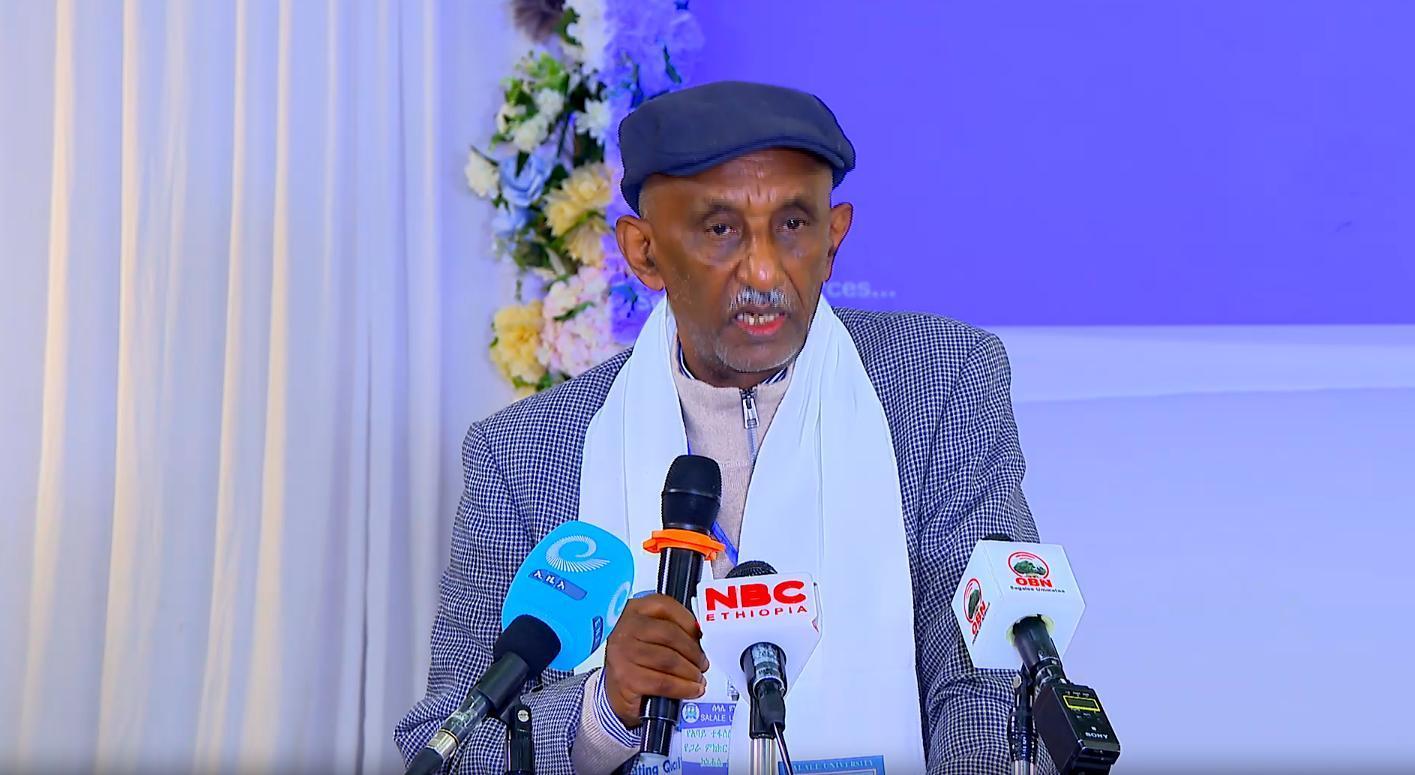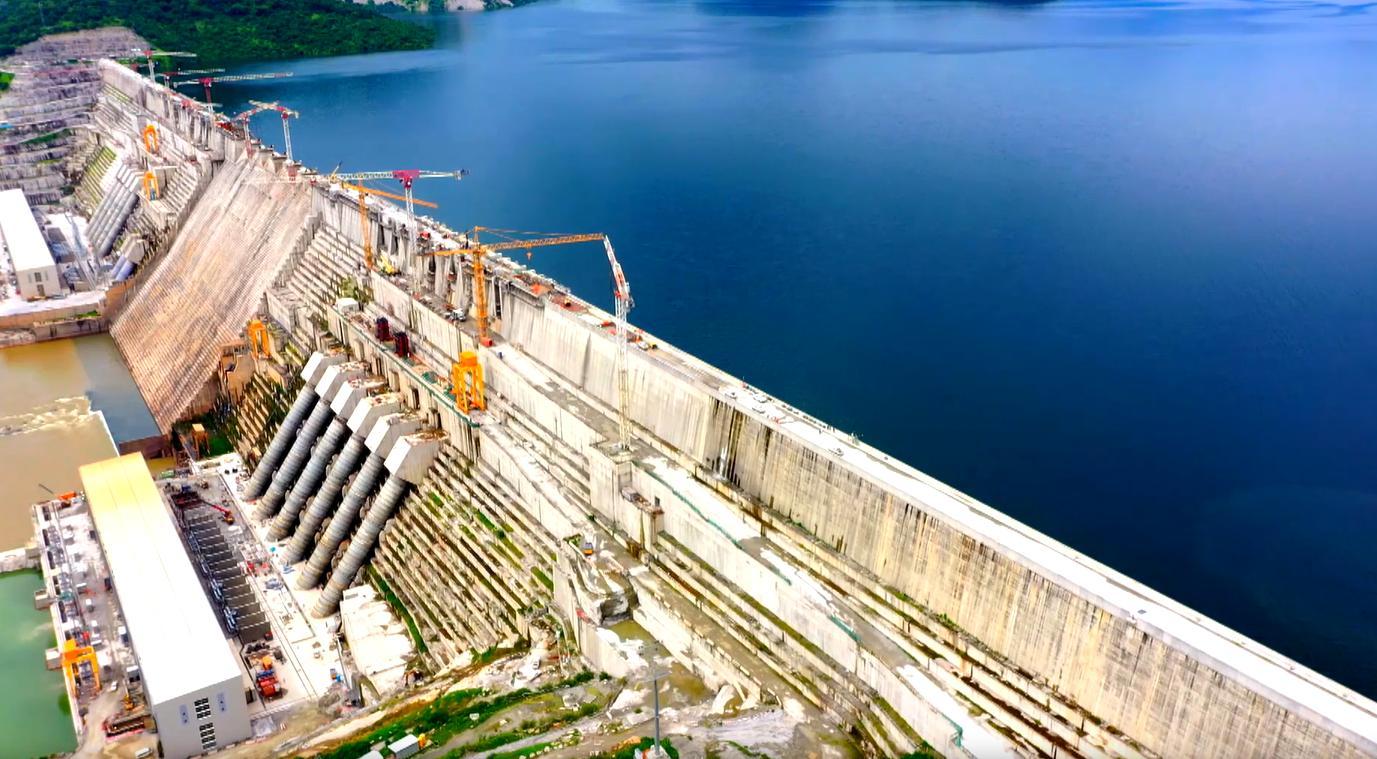Africa-Press – Ethiopia. Scholars emphasized that the Grand Ethiopian Renaissance Dam (GERD) is poised to become a catalyst for enhanced regional collaboration, fostering peace, sustainability, and ecological stewardship across the Nile Basin.
The Office of the National Council for the Coordination of Public Participation to GERD and Selale University held discussion on integrated development of the Abay Basin to foster collaboration on soil and water conservation works.
Aregawi Berhe, Director General of the Office for the Coordination of GERD urged universities to step up efforts for collaborative conservation efforts on Abay River Basins.
Universities play a crucial role in stepping up efforts in research and innovation, Aregawi said, elaborating that academic institutions contribute scientific knowledge, develop sustainable land and water management techniques, and engage students and local communities in conservation practices.
He added that the planting of over 48 billion saplings symbolizes a rebirth of commitment to environmental restoration and sustainable growth, which he called an inspiring ecological renaissance alongside the infrastructural one.
President of Selale University, Feyera Dinsa, has emphasized that environmental stewardship is a pillar of their collaborative vision.
Having articulated the symbiotic relationship between economic progress and environmental conservation, he highlighted the university’s active role in planting bamboo and native plants around the dam.
This initiative, he noted, illustrates a commitment to mitigating siltation and enhancing local ecosystem health. Through engagement with surrounding communities, Selale University exemplifies how environmental management must be shared among communities.
Feyera also stressed the continuity of protective efforts, urging all sectors of society to safeguard the dam so it remains a power source for generations.
He shared ongoing research initiatives, including planting fruit and incense trees in the Abay Valley and promoting biodiversity through the cultivation of multipurpose plants.
Increasing public awareness complements these efforts, stressing that sustainable development requires community-wide participation.
Addressing climate change, the president reaffirmed the university’s commitment to innovative adaptation strategies to prevent the Abay Basin’s water and ecosystems from climate impacts.
The university’s work is aimed not only to preserve the dam but also to strengthen the environmental foundations that sustain millions of livelihoods, with a holistic vision that fosters sustainability, he stressed.
Vice President of Assosa University, Melkamu Deresa, also emphasized the crucial need to preserve watersheds and catchment areas.
The healthy landscapes prevent soil erosion and sediment buildup, which, if unchecked, can clog waterways and undermine water management systems linked to the GERD, he emphasized.
Assosa University is actively coordinating research and development projects focused on soil and water conservation, underlining the importance of academic support in environmental sustainability.
Melkamu emphasized deeper university involvement in environmental protection and community engagement, reinforcing the indispensable role higher education institutions play in securing water resources for sustainable development, particularly in geopolitically critical areas like the Abay Basin.
Amare Bantider from Addis Ababa University, on his part, stressed the importance of integrated water and land resource management to reap the full benefits of the GERD.
He stated that managing the interconnected landscape and water systems collectively is vital.
Amare stressed the need for academic institutions to intensify research work

in natural resource conservation, noting the necessity of evidence-based policies for sustainable dam management.
The Green Legacy initiative’s massive tree-planting campaign of Ethiopia has demonstrated what a determined citizenry can accomplish, he stressed.
Amare also highlighted the connection between environmental well-being and water protection, noting that safeguarding natural resources preserves biodiversity and ecological balance, which in turn secures vital water sources.
Emphasizing collaboration between universities, local governments, and communities, he stated that amplifying these efforts would leverage the synergies between knowledge institutions and societal stakeholders.
Kassa Shawul from Mekdela Amba University highlighted the extraordinary role that universities play in partnering with communities to effectively manage environmental and resource issues.
He emphasized that this partnership model enhances communication, streamlines efforts, and fosters a collective sense of accountability for ecological health.
Kassa described the dam as proof that Ethiopian ambition, when driven by articulated strategy, yields monumental successes.
He added that Mekdela Amba University is committed to undertaking research and policy advocacy that supports sustainable national development.
The scholars called for unified action among academic institutions, the government, and local communities for the integrated development and conservation of the Abay Basin.
They emphasized that long-term success hinges on sustained cooperation, rigorous research, active community involvement, and vigilant environmental protection.
The GERD will catalyze regional collaboration that promotes peace, sustainability, and ecological stewardship, scholars stressed.
For More News And Analysis About Ethiopia Follow Africa-Press






